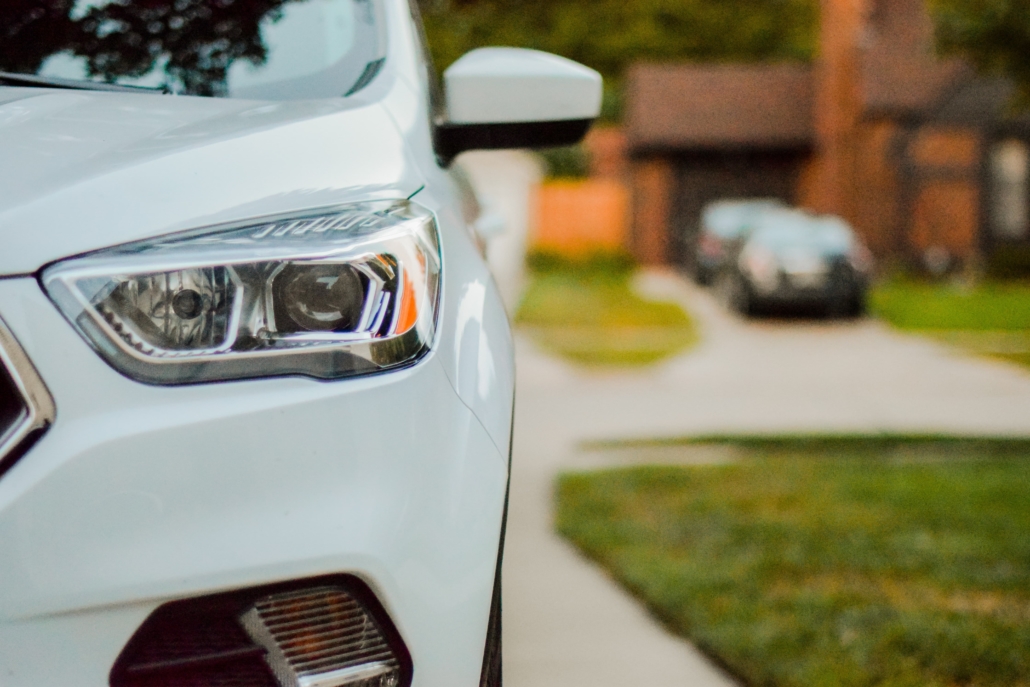Insurance Considerations for First-Time Homebuyers
With so much excitement, anticipation, and planning that coincides with purchasing your first home, it’s easy to overlook certain details that might not immediately impact you before your move-in date. From coordinating inspections to dealing with financial negotiations, you are probably trying to just get through this process—rather than think about ways to protect yourself and your assets in the future. In order to help you best prepare for what lies ahead, you can review the following considerations to ensure you and your family are financially secure, no matter what life throws your way.
Homeowners Insurance Basics:
Generally speaking, a homeowner’s insurance policy is necessary when you purchase a home as it will protect your residence and personal possessions if during an unfortunate event such as damage or a break-in. Should you need to leave your home temporarily due to damage, your insurance policy will help you afford to do so until your home is safe to live in. Another extremely important aspect of homeowners insurance is that it protects you if someone were ever to fall or get injured on your property. If they try to sue you, your policy will cover the costs, saving you from a detrimental financial situation.
Who should buy a homeowners insurance policy?
To err on the side of caution, it’s recommended that you purchase a homeowner’s policy if you own a home, condo, townhouse, DIY tiny house. Similarly to life insurance or disability insurance, individuals and families are not required by law to have a homeowners policy after you have paid off your mortgage. However, it’s highly advised to have a policy for the entire duration of your homeownership to protect your finances and your possessions. In the unlikely event that purchase your home with cash, you will still want to have a policy in place for your own financial protection, even if not required by law.
What does homeowners insurance cover?
As mentioned, homeowners insurance covers your home, personal property, and offers liability protection, while reimbursing you if you need to move out of your home due to damage (covered by your policy). This would typically include damage from lighting, a house fire, wind, or theft. In addition, your policy will protect your family members, spouse, or blood relatives the same way if they are living under your roof.
What does homeowners insurance NOT cover?
Now that you know what basic coverage does include, it’s important to understand what type of damage a homeowner’s policy doesn’t include to determine if you need additional coverage based on the location of your property and home. If you purchased a home in an area prone to earthquakes, sinkholes, or sewer backup, you might want to consider an additional standalone policy to protect you should you experience any of those problems. Other issues like flooding, termites, bed bugs, and infestations are not something automatically covered.
It’s helpful to know in advance what environment and climate you will be living in so that you can protect your property and possessions. Not only does doing your research on the property help you prepare, but it will help you plan for new circumstances you might have to deal with as a homeowner. Especially as a first-time buyer, you don’t want to be caught off guard when it comes to damage or issues due to the location of your home. Although there is no perfect journey when it comes to purchasing your first home, there are some best-kept secrets to help you feel proactive and stay calm while trying to avoid some potential issues in the future. There is no such thing as being overly prepared as a new homeowner, so doing your due diligence now will serve you well in the months to come.

Life Insurance Basics:
Now, let’s take some time to discuss another important and highly recommended insurance purchase that will benefit you in the case of an unforeseen event. As you have seen over the last year, life can change in the blink of an eye, which is why it’s necessary to prepare for the unexpected. Reviewing your options when it comes to the variety of life insurance policies available is recommended—especially during a major life change such as moving, purchasing a home, or having a baby.
Life insurance is a tax-free amount of money that is used to replace your income if you were to pass away. Offering peace of mind and affordable financial assistance, life insurance can help support your loved ones that rely on you should something happen to you unexpectedly. The money allotted from a life insurance policy can be used to pay things like a mortgage, car loans, grocery bills, utilities, education or tuition costs, funeral arrangements, and more.
How much life insurance do you need?
This question depends on a few things but generally speaking, if anyone in your family relies on your income it’s best to have a life insurance policy in place. Again, this can help support children, a spouse, or family members who require part of your income to pay the bills and cannot afford this entirely in your absence. It’s recommended that you plan to purchase a policy covering around 10-15 times your income, but this is just a general guideline and each person has a unique set of circumstances that will influence the amount of coverage they should buy. It’s worthwhile to shop around and use an online calculator to specifically match your circumstances with what is best for you and your family.
What are some risks of not having a policy or enough coverage?
There are many people who are underinsured or not insured at all. This is unfortunate as many of these individuals might not realize the risk they are taking or the financial burden that will be placed on them in the case of an unforeseen circumstance after the passing of a loved one. In another respect, what some individuals don’t realize is that employer-provided insurance isn’t usually enough or transferrable to a new job—so it’s beneficial to have an additional policy to cover all your basic needs.
If you have not taken the time to evaluate your coverage, a major life event such as making a large investment on a home would be a great time to do so. If you do not have coverage you are putting your family, friends, or loved ones at risk of losing their own long-term financial plan since they might be unable to keep up with daily expenses. If you have a mortgage that is far from being paid off, they will have to take over this costly investment, possibly leading to major financial repercussions in their future if they do not have the funds. During a difficult time, the last thing you want your family to take on is financial stress that could have been prevented in the first place by obtaining an affordable life insurance policy.
Other insurance considerations:
In order to make sure you have secured all your financial assets and can support the future of your loved ones under any circumstance, there are few other insurance options you might want to evaluate during this time. If applicable, you might consider the following options to help you maintain the most peace of mind.
Auto Insurance:

Moving or purchasing a home is no time to lose sight of your auto insurance needs. Since you will be driving to a different location, possibly moving areas, and communing at different capacities, it’s important to make sure that your automobile is financially protected. It’s recommended that you reevaluate your auto insurance needs as there is a good chance you might be able to save some cash by bundling home and auto or revisiting your coverage needs. In addition, a new home calls for a fresh new start! Take the time to make sure all your financial needs are aligned and properly allocated.
Pet Insurance:

For most people, pets are entirely part of the family, but like most things in life, they come with a cost. With all the time, energy, and attention you put into your pet, it’s likely that you’ll want to keep them happy and healthy for a long time! Pet insurance reimburses you for expenses should anything bad or unexpected happen to your pet (similar to health insurance if something happens to you). Pet insurance can save you from paying the big bucks when it comes to vet bills, so if your pet was injured or become ill, you don’t have to panic over the monetary implications of this event. There are certain instances where pet insurance might be really helpful for your financial situation, in which case you can determine if pet insurance is necessary by talking through your options with a professional representative.
Purchasing your very first home is such an exciting time for you and your family. Although it can feel overwhelming emotionally and financially, there is light at the end of the tunnel and working hard now to prepare for the future will allow you to fully enjoy this investment for all its worth.

